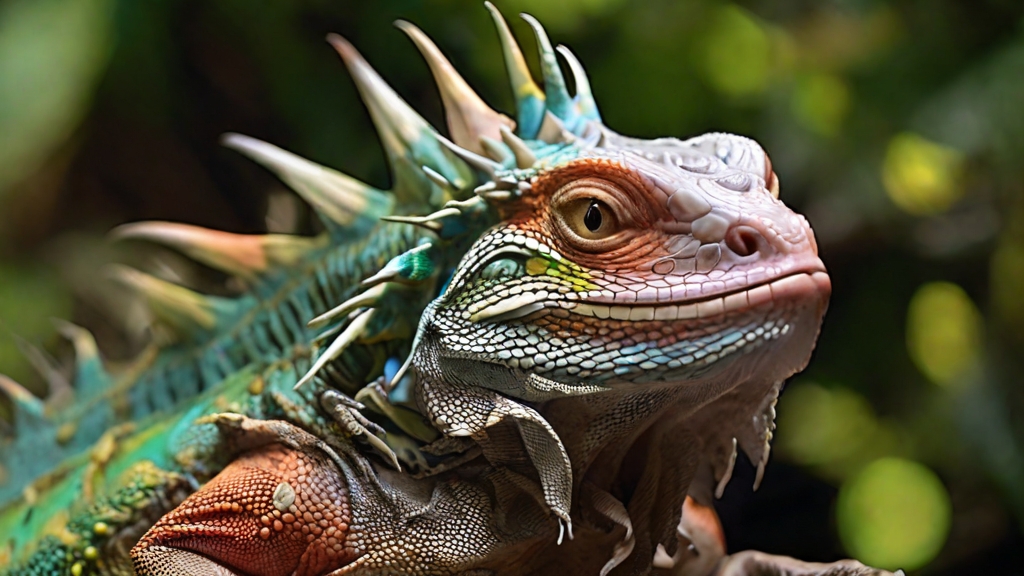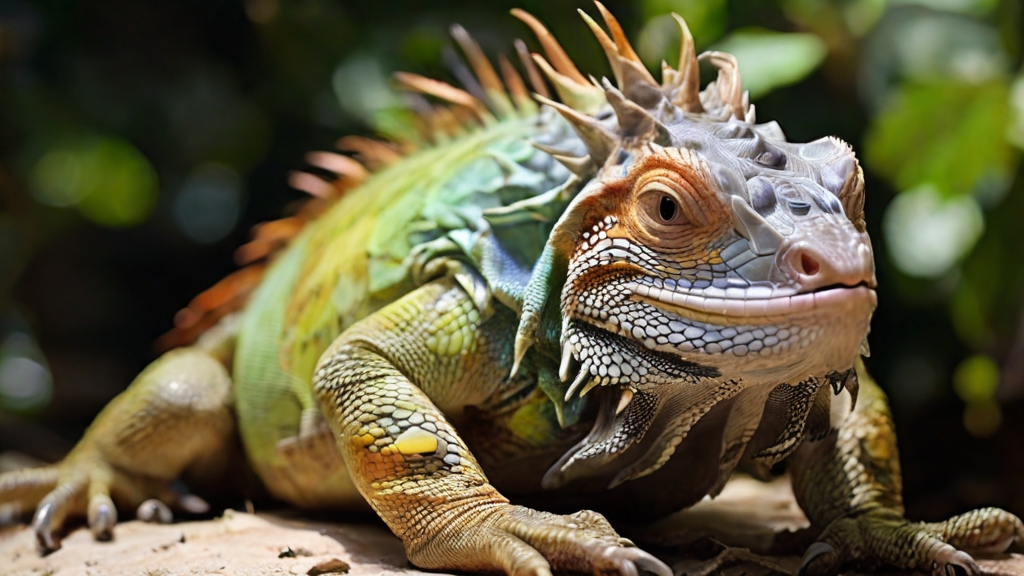When it comes to keeping an iguana as a pet, providing them with a well-balanced diet is crucial for their overall health and well-being. Iguanas are herbivores, which means their diet primarily consists of plant matter such as fruits, vegetables, and leafy greens.
While it may be tempting to offer them canned vegetables for convenience, it is important to understand the pros and cons of this feeding choice.
Understanding the Importance of a Balanced Diet for Iguanas
Iguanas require a balanced diet to meet their nutritional needs and maintain optimal health. A varied diet ensures they receive essential vitamins, minerals, and fiber. Incorporating different types of vegetables helps provide the necessary nutrients for their growth, bone strength, and immune system.
It is crucial to strike the right balance between vegetables, fruits, and leafy greens to ensure their diet is well-rounded and meets their specific dietary requirements.
The Pros and Cons of Feeding Iguanas Canned Vegetables
Examining the Nutritional Value of Canned Vegetables for Iguanas
Canned vegetables can be a convenient option for iguana owners, especially when fresh produce is not readily available or out of season. Canned vegetables retain some nutritional value, but it is important to note that they may not be as nutrient-dense as their fresh counterparts. According to a study published on the National Center for Biotechnology Information (NCBI) website, the canning process can lead to a loss of certain vitamins, such as vitamin C and B vitamins. Therefore, it is essential to consider the nutritional content of canned vegetables before including them in your iguana’s diet.
Potential Risks and Drawbacks of Feeding Iguanas Canned Vegetables
While canned vegetables can offer convenience, there are potential risks and drawbacks to consider. Canned vegetables often contain added salt or preservatives, which can be harmful to iguanas. Excessive sodium intake can lead to dehydration and kidney problems in these reptiles. Furthermore, preservatives such as sulfites can cause adverse reactions in some iguanas. It is crucial to carefully read the labels and choose canned vegetables that are free from additives and preservatives to ensure the health and well-being of your pet.
Choosing the Right Canned Vegetables for Your Iguana
Identifying Safe and Nutritious Canned Vegetable Options
If you decide to incorporate canned vegetables into your iguana’s diet, it is important to choose safe and nutritious options. Opt for canned vegetables that are low in sodium and do not contain any added salt or preservatives. Look for vegetables that have been packed in water or their natural juices rather than syrup or brine. Examples of suitable canned vegetables for iguanas include green beans, peas, and corn. These vegetables can provide some essential nutrients while minimizing potential harm to your pet.
Considering the Impact of Preservatives and Additives
When selecting canned vegetables for your iguana, it is important to carefully read the ingredient list to ensure that no harmful preservatives or additives are present. Avoid vegetables that contain sulfites or other chemical additives, as they can cause adverse reactions in iguanas. By choosing canned vegetables that are free from harmful additives, you can provide a safer and healthier option for your pet.
Preparing Canned Vegetables for Iguana Consumption
Proper Washing and Preparation Techniques for Canned Vegetables
Before offering canned vegetables to your iguana, it is crucial to wash them thoroughly to remove any excess salt or preservatives. Rinse the vegetables under running water or soak them briefly to reduce sodium content. It is advisable to consult with a veterinarian or reptile specialist for specific instructions on how to prepare canned vegetables for your iguana’s consumption.
Optimal Serving Sizes and Frequency of Canned Vegetable Feedings
When feeding your iguana canned vegetables, it is important to provide appropriate portion sizes and frequency. Offer small amounts of canned vegetables as part of a varied diet that includes fresh produce. Monitor your iguana’s weight and overall health to ensure they are receiving the proper amount of nutrients. It is recommended to consult with an exotic veterinarian to determine the ideal serving sizes and frequency for your iguana based on their individual needs.
Supplementing Iguana’s Diet with Fresh Vegetables
Emphasizing the Importance of Fresh Produce in Iguana’s Diet
While canned vegetables can be a part of an iguana’s diet, it is crucial to supplement their meals with fresh produce. Fresh vegetables provide higher nutritional value and are generally safer for iguanas to consume. Leafy greens such as collard greens, mustard greens, and dandelion greens are excellent choices for their high calcium content. Including a variety of fresh vegetables ensures that your iguana receives a wide range of nutrients to support their overall health.
Balancing Canned and Fresh Vegetable Consumption for Iguanas
To strike the right balance in your iguana’s diet, it is advisable to offer a combination of canned and fresh vegetables. Fresh produce should form the majority of their diet, while canned vegetables can be used as occasional supplements or when fresh options are limited. By providing a mix of both, you can ensure that your iguana receives a well-rounded diet that meets their nutritional needs.
Conclusion: Striking the Right Balance in Iguana’s Diet
When it comes to feeding iguanas, it is important to strike the right balance in their diet. While canned vegetables can provide convenience, they should not replace fresh produce in the iguana’s diet. Fresh vegetables offer higher nutritional value and are generally safer for these reptiles. However, if you choose to include canned vegetables, opt for low-sodium options without additives or preservatives. Consulting with a veterinarian or reptile specialist can provide further guidance on maintaining a healthy and balanced diet for your iguana.
Frequently Asked Questions (FAQs) about Feeding Iguanas Canned Vegetables
Can iguanas eat canned green beans?
Yes, iguanas can eat canned green beans. However, it is important to choose low-sodium options without any added salt or preservatives. Wash the beans thoroughly to remove excess sodium before offering them to your iguana.
Are canned peas safe for iguanas?
Canned peas can be included in an iguana’s diet. Look for options without added salt or preservatives. Remember to rinse the peas before feeding them to your iguana to reduce sodium content.
Can iguanas eat canned corn?
Iguanas can eat canned corn as part of their diet. Choose canned corn without added salt or preservatives. Rinse the corn thoroughly to remove any excess sodium before offering it to your iguana.
How often should I feed my iguana canned vegetables?
Canned vegetables should be offered in moderation as occasional supplements to your iguana’s diet. Fresh vegetables should form the majority of their meals. Consult with a veterinarian to determine the suitable frequency and serving sizes for your iguana based on their individual needs.
Can canned vegetables be the primary diet for iguanas?
No, canned vegetables should not be the primary diet for iguanas. Fresh produce offers higher nutritional value and is generally safer for these reptiles to consume. Canned vegetables should only be used as occasional supplements or when fresh options are limited.




